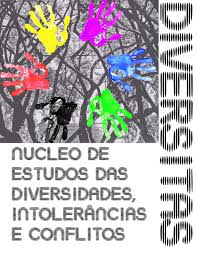Recognition and Reparations
Resumo
The recognition of minority and minoritized groups is a central issue for contemporary societies. From the moment societies think of themselves as being composed of multiple groups, and understand themselves as being heterogenous, they must also think about the relative inclusion of these groups within their whole. The issue of recognition is at the heart of rule of law-based and openly pluralistic societies. Thinking about recognition involves not just thinking about various identities within a plural whole, but also thinking about recognition of the injuries suffered by minority or minoritized groups. Recognizing groups such as indigenous peoples or African descendants in the Americas, for example, entails grappling with a past of colonization and slavery—two situations par excellence of historical wrongs and, of course, their consequences. Hence, recognition inevitably encompasses links between identity, the experience of minoritization, the historical wrong in question, and reparations for this wrong. These links are precisely the subject of this text, and are examined in three stages: a study of conceptual approaches to recognition and reparations; a look at the narrative of a particular wrong and the demands for reparations made by a specific group, namely the black movement in Brazil, which raises the issue of slavery and its consequences; and finally an examination of the responses to such demands, in the form of laws, policies, and various types of civil society actions. The conclusion will be an opportunity to revisit the conceptual links between recognition and reparations.
Palavras-chave
Texto completo:
PDF (English)Referências
References
_______Mouvements, 2008, numéro spécial, Vérité, Justice et Réconciliations.
_______Cahiers d’études africaines, 2005/3-4, n° 179-180, numéro spécial, Esclavage moderne ou modernité de l’esclavage?
Alberti A. et A. Pereira, 2007, Histórias do movimento negro no Brasil : depoimentos ao CPDOC, Rio de Janeiro, Pallas.
Benbassa E., 2010, Dictionnaire des racismes, de l’exclusion et des discriminations, Paris, Larousse.
Boudreault R. 2003, Du mépris au respect mutuel: clefs d'interprétation des enjeux autochtones au Québec et au Canada, Montréal, Éditions Écosociété.
Butler J., 2007, Le Récit de soi, Paris, Puf, 2007.
Contins M., 2005, Lideranças negras, Rio de Janeiro, Aeroplano.
d'Adesky J., 2001, Racismes et antiracismes au Brésil, Paris, L'Harmattan.
Do Nascimento A., 1980, O quilombismo, Rio de Janeiro, Vozes.
Fraser N., 2005, Qu'est-ce que la justice sociale ? Reconnaissance et redistribution, La Découverte.
Freyre G., 2003 [1933], Casa grande e senzala, São Paulo, Global.
Garcia J., 2006, 25 anos movimento negro no Brasil, Brasília, Fundação
cultural Palmares.
Gomes A., 2008, « Trabalho analogo a de escravo : construindo um problema », Historia Oral, 11, 1-2, p. 11-41.
Gomes A., 2012, « Repressao e mudanças no trabalho analogo a de escravo : tempo presente e usos do passado », Revista Brasileira de Historia, 32, 64, p. 167-184.
Hanchard M., 1994. Orpheus and power: the Movimento negro of Rio de Janeiro and São Paulo, Brazil, 1945-1988. Princeton N.J., Princeton University Press.
Fernandes F., 1969, The Negro in Brazilian society, New York, Columbia University Press.
Honneth A., 2003, La Lutte pour la reconnaissance, Paris, Cerf.
Honneth A., 2006, La Société du mépris, Paris, La Découverte.
Honneth A., 2015, Le Droit de la liberté, Esquisse d'une éthicité démocratique, Paris, Gallimard.
Kimberly Jones-de-Oliveira, 2003, "The Politics of Culture or the Culture of Politics: Afro-Brazilian Mobilization, 1920-1968," Journal of Third World Studies, v. 20, part I.
Kipling G. D. et Fondation autochtone de guérison, 2003, Peuples autochtones, résilence et séquelles du régime des pensionnats, Ottawa, Fondation autochtone de guérison.
Ladner K. et M. Orsini, 2004, « De « l’infériorité négociée» à l’«inutilité de négocier»: la Loi sur la gouvernance des Premières Nations et le maintien de la politique coloniale », Politique et sociétés, 23(1), p. 59-87.
Laliberté A., 2012, Le journalisme entre guerre et paix au Rwanda. Québec, PUL.
Laplantine F. et A. Nouss, 2001, Métissages: de Arcimboldo à Zombi. Pauvert.
Maison R., 1999, « Le crime de génocide dans les premiers jugements du Tribunal pénal international pour le Rwanda », Revue générale de droit international public, 103-1, p. 129-145.
Maio M. C., 1999, « O Projeto Unesco e a agenda das ciências sociais no Brasil dos anos 40 e 50 », Rev. bras. Ci. Soc., vol.14, n.41, p. 141-158.
Mattos H., Castro H.M.M., Abreu M. et C.V. Dantas, O Negro no Brasil. Trajetórias et lutas em dez aulas de história, Rio de Janeiro, Objetiva.
Pétré-Grenouilleau O., 2003, Les traites négrières, Paris, La Documentation française.
Renault E., 2001, Mépris social, Paris, Le Passant.
Renault E., 2004, L’Expérience de l’injustice. Reconnaissance et clinique de l’injustice, La Découverte, Collection « Armillaire ».
Saillant F., 2014, Le mouvement noir au Brésil (2000-2010). Réparations, droits et citoyenneté, Louvain La Neuve, Académia.
Saillant F., 2009, « Droits, citoyenneté et réparations des torts du passé de l’esclavage. Perspectives du Mouvement noir au Brésil », Anthropologie et Sociétés, 33 :2, pp. 141-165.
Spivak G., 1990, The Post-Colonial Critic: Interviews, Strategies, Dialogues. Ed. Sarah Harasym.
Reis J.J. et F. Dos Santos Gomes, 2005, Libertade por um fio. História dos quilombos no Brasil, São Paulo, Companhia das letras.
Taylor C., 1992, Multiculturalism: Examining the Politics of Recognition, Princeton University Press.
Thomas H., 2006, La Traite des Noirs, 1440-1870.
Truchon K., 2014, L’exigence de visibilité par l'image dans les sociétés contemporaines. Le cas d'un complexe d'habitations sociales à Montréal, Québec, Université Laval, Thèse de doctorat.
Apontamentos
- Não há apontamentos.
ISSN eletrônico: 1984-5677
ISSN impresso: 1519-0994





















